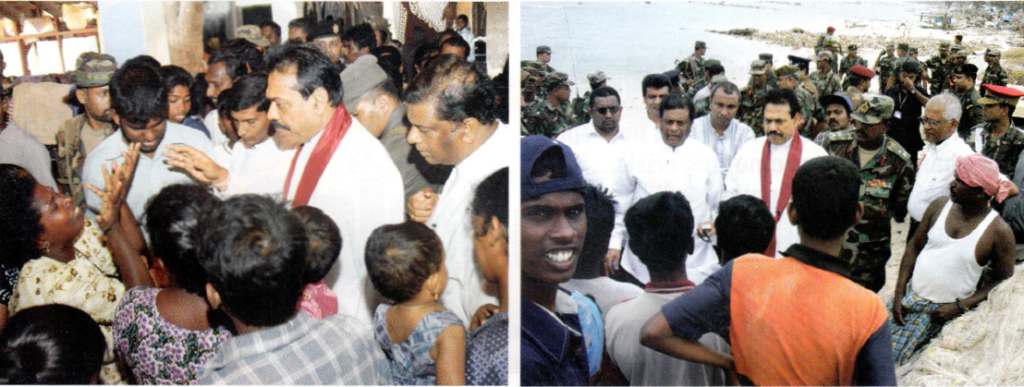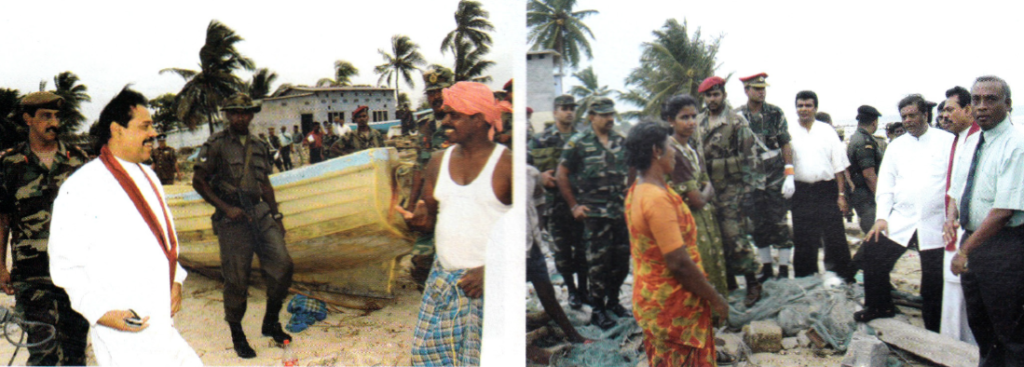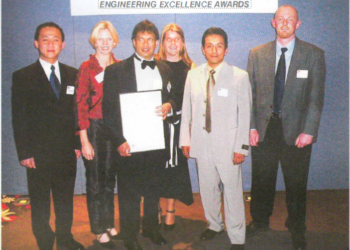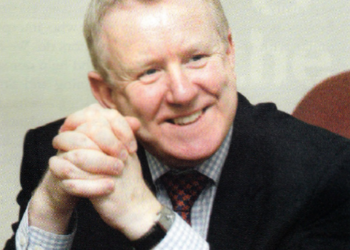An interview with the Prime Minister Mahinda Rajapaksa about the relief and reconstruction efforts taking place throughout the country after the tsunamis of December 26, 2004, and the hope of building a better tomorrow.
By Dinesh Weerakkody
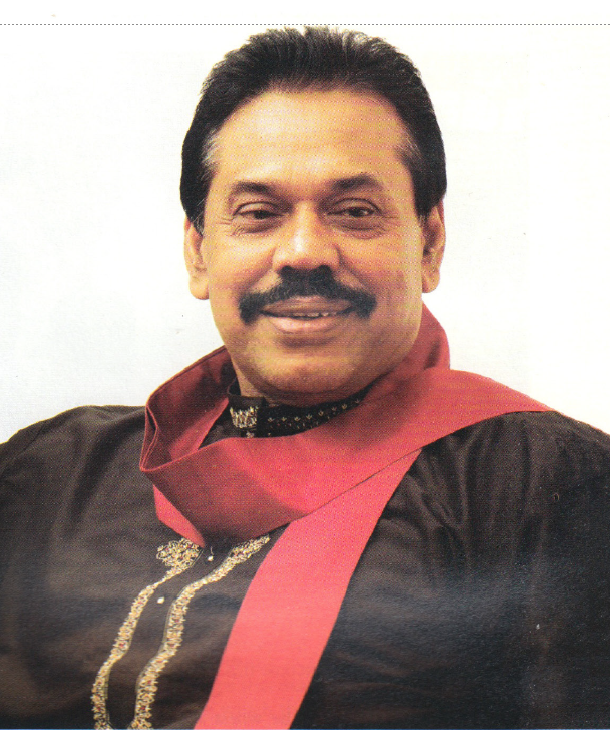
Can you begin by telling us the government’s strategy to face the real problems that Sri Lanka will have to grapple with in the future to face the aftermath of the tsunami disaster?
Because leaving aside reconstruction and rehabilitation, there are very serious questions being raised about the immediate relief to disaster victims. We have already set up three task forces. One is looking after the needs of the people, which is headed by Dr Tara de Mel. The second one is looking into law and order and that is headed by Thilak Ranaviraja. The third one is headed by Mano Tittawela and the Prime Minister’s Secretary Lalith Weeratunga and this team is drawing up plans and discussing with the line ministries on issues relating to rehabilitation of hospital . schools. power. roads, water supply, bridges, telecom and urban development. We have given instructions that these task forces should discuss their proposals with the relevant line ministries and with the appropriate professional bodies in the country. The first task is to resettle these homeless people. The most important aspect, in my view, is to build houses for those affected and then the schools. The schools in the affected areas will be reopened on January 20, after the relocation of the people from those schools, which are being used as welfare centers. The schools that are destroyed will be reconstructed as soon as possible. With the assistance of the UDA, we have now identified lands of two types – for temporary shelters and for permanent dwellings. For the planning and implementation, we will ensure the full involvement of local communities, civil society and key stakeholders. So this is going to be a collective effort. Then to ensure that government aid reaches the displaced people, we will introduce a special ration coupon with effect from January 15. These families could then make their purchases at any co-op shop in the affected areas. More relief measures will be announced shortly.
There is talk that you have been asked by the President to lead the Hambantota reconstruction effort. Have you already assessed the needs across the many sectors and developed a reconstruction strategy? Also when will the construction of the new town begin?
We have now identified the lands which we want to build on. The construction of the new town will begin on January 15 under a UDA master plan. There are numerous people and organizations that also wish to help. We will first build temporary shelters and then make the permanent ones. In Hambantota there are people who are willing to construct permanent houses on a voluntary basis and the government is ready to provide them the land. In Tissamaharama we’re shifting some people to safer areas. A businessman in the area has built about 30 shelters; we have already moved some families to these houses. At Seenimodera we have already settled 96 affected families in high rise apartments, which I constructed when I was Minister of Fisheries, but had remained unoccupied. We have also made arrangements with several organizations to build more houses. House construction for those affected in the Hambantota district is already off the ground. Our main target is to build houses then the roads and other infrastructure. Basically, we will be building new townships. The new Hambantota port will also be located at the Karagam Lewaya. The railway line will be extended up to Kataragama. Overall, most houses and business establishments, excluding hotels, will be moved away from the 100-meter buffer zone.
There is a general feeling that the bureaucrats, politicians and administrators are still to get their act together and face the real problems following the tsunami tragedy, while the private sector and NGOs have been more effective when it came to providing relief to the victims. Your response?
First of all, we must commend the district secretaries and their officers for getting off the ground very fast with relief measures within hours if not minutes of the tragedy. Even the armed services and the police acted very fast. In many places they immediately distributed the rations which “Divisiveness on the lines of race, religion and politics has ruined our country. What we all need is a new spirit of sharing to overcome this crisis and build a better-tomorrow.” were in their stores to the affected people. I am personally aware of this. The government too acted with great speed. By the evening of December 26 itself, the government had sent Rsl0 million to every district secretary of every affected district with instructions that they may use the money as and when required to assist the tsunami victims. They had only to utilize that money before asking for more. The government response, as you can see, was both immediate and effective. In the meanwhile the private sector too participated in massive proportions in this relief effort. They did a tremendous job, often working through the district secretaries. In some cases the district secretaries encouraged the private sector as well as NGOs to work directly with the affected people. I would say the government, the private sector and the NGOs are working together, harmoniously, to provide relief to those affected.
The media praised you and Ranil Wickremesinghe for working together and overseeing the relief effort during the early hours of the crisis. Do you think we now have a golden opportunity for all political parties to come to some agreement to implement a common program of reconstruction?
I think we must. There is no second word about it. Whether it is the opposition, the government, UNP, TNA or LTTE, we must all get together to rebuild our country. This country belongs to us all.
Were you surprised by the unprecedented pledges of support for the reconstruction effort from the international community?
Yes, I was surprised by the magnitude of aid pledged. The international community has been very generous towards us. I never thought that aid would arrive so fast. That morning, when I heard the news of the disaster. the first country I contacted was India. Their response was immediate. In a matter of a few days all the countries pledged support. Within hours of the tragedy, we summoned a meeting of all the aid and relief agencies present in the country such as the UNDP, ICRC and so on, and they all agreed to support us. So yes, the international community came out very strongly to our aid in our hour of need.
Why is the government, which was slow off the mark when compared with the NGOs in providing relief to the affected people, now attempting to take full control of the relief operations?
I have already answered the first part of your question and shown you that the government – by which I mean both the central government and the district administration of each affected area – was not slow but in fact very fast in getting off the ground in providing relief to the affected people. Now, to the second part of your question. For one thing, the government is not trying to take full control of relief operations. We are interested in facilitating the coordination of the efforts of the numerous players participating in the relief activity. This is to ensure the rationalization of the overall relief effort and to optimize the effectiveness of the relief work to which so many organizations and individuals have dedicated themselves. Surely coordination is important. No one will deny that. As it often happens when a disaster of this magnitude takes place. the relief efforts both from the private sector and the civil society tend to get disbursed in an uncoordinated way. This invariably leads to confusion and misunderstanding. For instance, some people are complaining that in the east, Muslims are receiving aid and not the Tamils, while in other places they are saying the Sinhalese are receiving aid and not the Muslims. To overcome this type of issue we have devised a coupon system to ensure a fair and just distribution system of what is available. My personal view is that it is the government’s responsibility to help all the people equally. The problem with uncoordinated private sector operations is that there is a tendency for some of them to access only the nearest or most convenient locations, as a result of which some centers receive more aid than others. Therefore there is a clear need for coordination. The Social Welfare Ministry and Health Ministry at the central level and the district secretary and local director of health services at the district level are best qualified to undertake this task. It is the government’s responsibility to see that aid reaches all the affected people equally, without favor or discrimination. Everyone, irrespective of race, creed or religion, needs assistance to overcome this terrible human tragedy.
The fishing industry, the worst affected industry in this calamity, is finding it hard to get back on its feet. What is the government doing to resurrect this sector?
I spoke to the South Korean Prime Minister and he said that he would send some boats and trawlers to Sri Lanka. Meanwhile we have already begun constructing boaL. The private sector and the Fisheries Ministry are getting together for this purpose. At the last cabinet meeting. we allocated Rs 10 million to start producing more mould which are required in boat construction. We are also persuading our people to consume fish once again, and to dispel fears that the fish is contaminated.
What are the possible economic impacts of the tsunami in the short and long term?
Tremendous, particularly for the tourism and fisheries industries. The net impact of the tsunami will depend on how quickly reconstruction will take place and how it is financed. Overseas aid is critical not only to fund the relief effort but also for economic recovery. But after all, the human tragedy is greater than its economic impact.
Do you expect a significant impact on the country’s balance of payments position?
Yes, because in the short run the tourism industry in particular will be adversely affected. However the massive inflow of foreign aid will more than offset this. This is already clear from the appreciation of the Sri Lankan Rupee.
So what you are implying is that faster reinvestment leading to stronger investment demand could in effect turn the net economic impact positive?
Yes. However the net economic impact of the tsunami will also depend on how the investment is effected. Transparency and good governance are not only very important but they are very critical in this context.
How much money does the government need for reconstruction immediately?
I think it will be around US$2.5 billion.
Have you spoken to the insurance industry? Some of the companies are saying they cannot pay?
No. Most of the hotels. I am told, are insured. I called a meeting with the insurance companies days after the tsunami. They assured me that most of the large hotels are insured with them and that they will be compensated. So they will receive their claims.
Can you confidently say that any major outbreak of diseases can be managed?
We are conscious of this danger and we are doing whatever we can to avoid any major outbreak of disease. In fact, teams of doctors and health workers are visiting the camps in all the affected areas and putting in place the necessary preventive measures.
What role do you want the private sector to play in the reconstruction, which also includes reconstructing the human spirit?
They have to come in a big way to rebuild the economy. This is the time that they should all help. It is their social responsibility to do so. The government alone cannot do it. The private sector and civil society must get involved and play a big role. The private sector should consider it a part of their social responsibility to set up industries and offer jobs to those who have lost their source of livelihood on account of this tragedy. Take the case of a young man who has lost his parents, loved ones and his livelihood as well. What is he to do? Someone must look after him. Someone must employ him. Someone must help him to rebuild his life. So the private sector must continue to work with us. So far, they have done a tremendous job.
However the private sector prefers to support the affected people directly to ensure their donations get into the hands of the people who need it most?
As I have pointed out earlier, in situations of this magnitude none of the participating actors – however well meaning and well motivated they may be – can effectively do anything alone. All participant actors must work together in a spirit of cooperation. Each must complement the other. Where reconstruction is concerned, you have to first identify the needs of the affected areas, so for that the government must come in. For instance you can build houses for the affected people but they should be handed over on the basis of a needs assessment and the houses should go to those who need them most. Relief and reconstruction has to be a coordinated effort. We must all do it together.
“Divisiveness on the lines of race, religion and politics has ruined our country. What we all need is a new spirit of sharing to overcome this crisis and build a better-tomorrow.”
There is a fear that the north and east will not receive their full share of aid?
If you analyze the statistics of what we have sent to the north and east, you will see the truth for yourself. The RslO million I spoke of earlier was given to all districts. Not only that, we have told the district to spend the money and then ask for more. In addition to this the government dispatched food and other essential item to all the affected areas including a great quantum to the north despite its smaller population because that area is less easily accessible than the south. In fact, Mr Thamilselvam informed the UNDP Resident Representative Mr .Miguel Bermeo on December 30 that the level of assistance reaching the north was satisfactory. When I sent some donation, which I had received to Mullaitivu through our RDA engineer the affected people said that they had enough food item but required mosquito nets and coils. That too shows how that they are receiving adequate essential supplies of aid. It is now in the reconstruction effort where we have to help the people in the north and east. Even in this very early or incipient stage of reconstruction, the north and east are well looked after. To give an example from my own direct experience. In the highways sector. on the advice of the ADB. the previous government had closed down the RCDCs. When I took charge of the Ministry of Highways the machinery belonging to the RCDC was idling. So we immediately took charge of this machinery and formed the Maga Neguma Company which then re-commissioned the machinery and started putting it to good use. So in the immediate aftermath of the tragedy, with the help of the Maga Neguma Company and the RDA, we were able to clear the main roads and reconstruct five bridges in 72 hours. We have also sent some of the machinery to the east and we are already in the process of reconstructing the bridges there, and this work will be completed in the next few days.
Will the work on the expressways continue?
There are plans to expedite the work on the Katunayake and Southern expressways. At the same time, we must not rush because we must first show the people the value of an expressway.
Do you think this crisis , the worst in our history, will push our leaders on all sides to do rank, sink petty political difference and come together for the sake of the country?
If we are to rebuild our country, all parties must get together and forget their differences and work on a joint program for a period of time. In fact, the President has made an appeal for unity and called upon all political parties to join her to overcome the crisis, and rebuild our country.
Are you as the Prime Minister prepared to make the political sacrifice required to make this happen?
Yes, for the sake of the country. For the sake of us all. Divisiveness on the lines of race. religion and politics has ruined our country. What we all need is a new spirit of sharing to overcome this crisis and build a better tomorrow. Let us in all humility commit ourselves totally to this enormous task.
